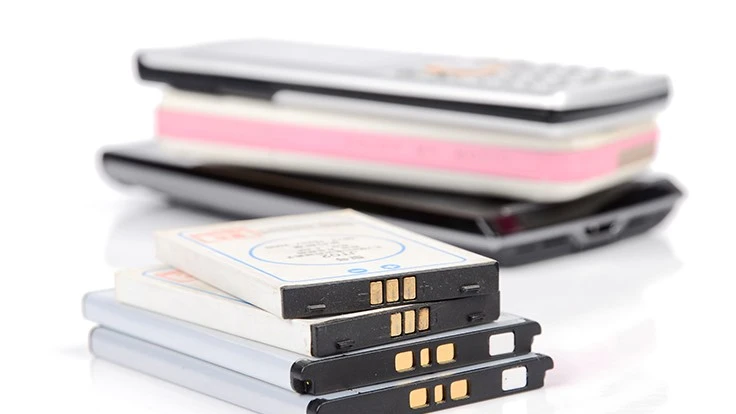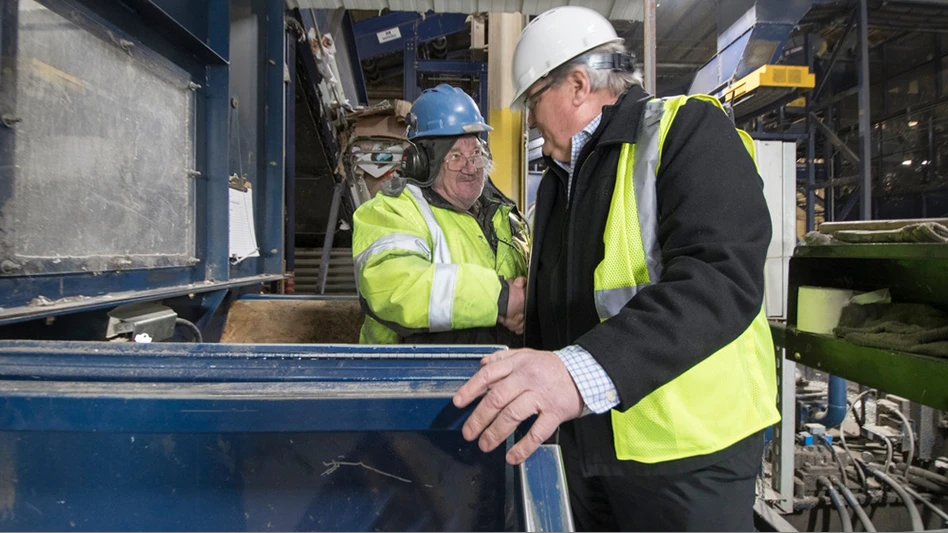
Consumer battery technology has changed in recent years, as more manufacturers are choosing to power their products with batteries.
“It used to just be laptops and phones powered by batteries,” said Carl Smith, CEO of Atlanta-based Call2Recycle, during an educational session on battery recycling at the Institute of Scrap Recycling Industries’ (ISRI) 2019 Convention & Exposition April 8-11 in Los Angeles. “Now, you’re seeing batteries in things like yard products, scooters and bikes. The definition of what’s a consumer battery is changing pretty dramatically.”
During the educational session, Craig Boswell, president of Batavia, Illinois-based HOBI International Inc., added that lithium-ion batteries also are growing in popularity among manufacturers. “Lithium-ion [batteries] are taking over in some spaces because of their weight and the life-cycle cost is cheap with less expensive maintenance,” he said.
With more battery applications out there, Smith added that recyclers see a wider variety of batteries coming to material recovery facilities (MRF) and scrap yard. He said this has led to some safety concerns, though.
“It used to be 10 years ago you could take a battery out and change it,” Smith said. “Now, batteries are embedded in products and not intended to be removed by the consumer. What we see increasingly is consumers figuring out how to rip batteries out of their iPhones and selling them back. Those batteries are lithium-polymer batteries—you can’t take them out without damaging them. Even the best people taking them out leads to damage or risk.”
So, embedded batteries might be great for product design, but they pose safety risks in the recycling and disposal processes. Smith added that they aren’t the most “attractive” item to recycle because of their low commodity values, but they are a growing concern.
During the session, Smith offered a few ways the industry can increase the awareness about battery recycling and improve safety of the disposal and recycling process.
Educate employees
One key to reducing the chances of battery-related fires is to educate personnel about safe disposal and recycling techniques. Boswell said any recyclers that handle batteries need to be prepared for thermal events.
“If you recycle batteries in any volume, you will have thermal events,” he said. “You need your people to be prepared.”
To prevent fires and thermal events caused by batteries, Boswell said recyclers shouldn’t store batteries that have a charge together.
“They’re combustible material,” he said. “If there’s no energy, there’s nothing to charge the fire.”
Smith also advised recyclers to develop standard operating procedures on how to handle both used batteries and damaged batteries.
If a battery-related fire does occur at a recycling facility, Boswell recommended moving the battery that caused the fire to a concrete floor if possible. “Concrete doesn’t burn easy,” he said. Then, after the incident, he said teams should evaluate safety procedures and determine where they could improve.
Educating consumers
In addition to educating employees on battery-related safety, Smith said recyclers should help to educate the general public on safe battery disposal and recycling.
“Just because a consumer knows you can recycle it doesn’t mean it goes in their curbside bin,” Smith said. “People toss them in the bin thinking, ‘I’m recycling them.’ Education shouldn’t just be at the MRF. It should also happen to make sure the batteries don’t go in the curbside bins.”
Call2Recycle helped to start the Avoid the Spark campaign as one way to educate the general public on battery safety in May 2018. Smith said he tested the campaign with five counties in California’s Bay Area first to see whether it would be effective. After about six months of the campaign, Smith said the number of Call2Recycle boxes that were at-risk of catching fire declined by about 88 percent.
“We know education does work,” he said. “It particularly works when people want to recycle anyway and just need to be told how to do it smart. There needs to be discussion on contamination and safety.”
Latest from Waste Today
- Techbros launches AI-integrated electronics processing facility
- Understanding interchange optimization
- Account Updater: Keeping customer credit cards always up-to-date
- Understanding credit card fees
- CDRA names new executive director
- CRI credits DRS modifications for Connecticut container recycling rate boost
- LRS expands into Indianapolis with purchase of GHW
- Pelleting equipment: Transform hard-to-handle waste streams





